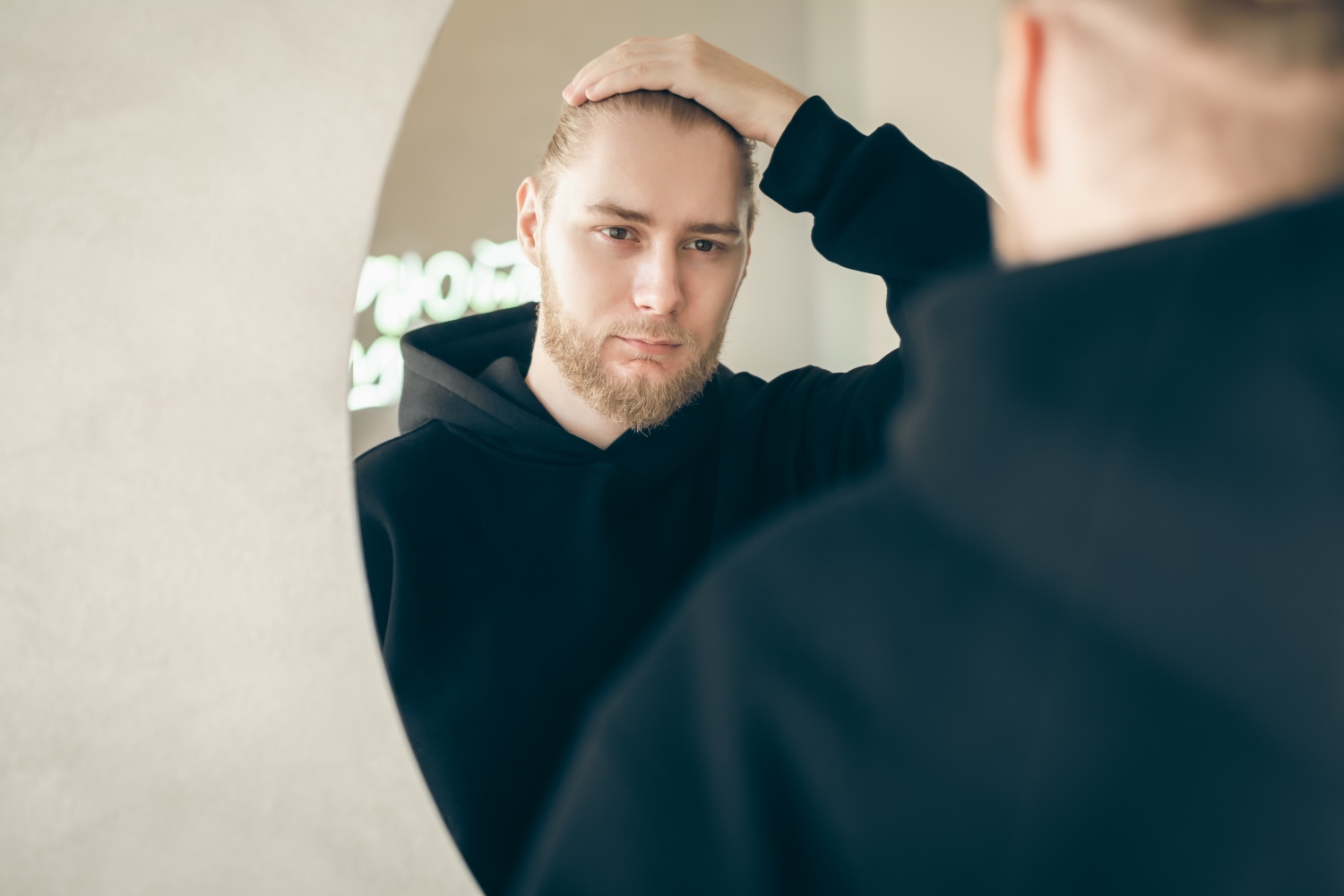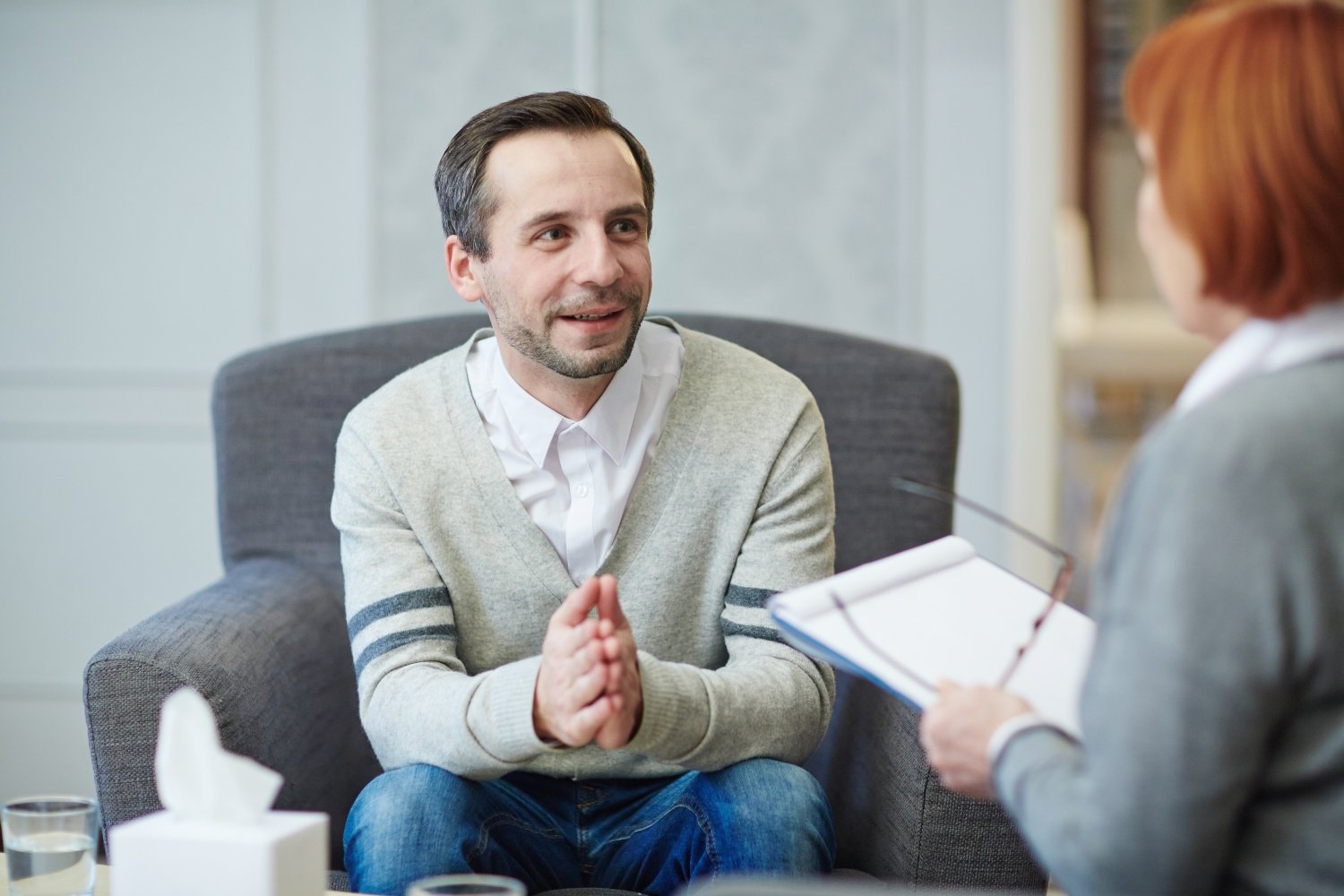If you’ve landed here because you are wondering whether or not anxiety might be the cause of your substance use, you are in the right place.
Addiction and anxiety often go hand-in-hand.
As with other mental health disorders like depression and burnout, substance use can be used as a way to cope with the symptoms of anxiety, whether the person is aware of this coping pattern or not.
It’s crucial to understand that while substances like drugs and alcohol may offer a brief respite from anxiety symptoms, this relief is usually fleeting.
Why addressing both disorders together is key
What we often witness at our treatment centre in Spain is that substances, far from being a solution, usually exacerbate a person’s symptoms in the long run.
This can lead to a self-destructive cycle of dependency that can feel impossible to escape from.
At Camino Recovery, we recognise the necessity of a comprehensive treatment approach.
We provide individuals with bespoke dual diagnosis treatment that not only addresses the symptoms of addiction but also delves into the root cause, leading to lasting recovery and transformation.
Understanding the link between mental health issues like anxiety and the coping mechanisms many use to manage their anxious thoughts and emotions, such as drinking or drug use, can be a powerful breakthrough in recovery.
So, what is the link between anxiety, addiction, and recovery?
How addiction and anxiety are connected

Many studies have shown a profound link between addiction and mental health disorders like anxiety. Here’s what some of the research shows:
- Self-medication. Many turn to substances to help them cope with the symptoms of a mental health disorder, such as anxiety. Some may use alcohol, drugs, or prescription medication to calm racing thoughts or feelings of panic.
- Co-occurrence. Anxiety and addiction frequently co-occur. For instance, one study shows that around 20% of people with social anxiety disorder also develop a substance use disorder.
- Increased anxiety due to substance use. While substances often provide short-term relief, anxiety symptoms usually become intensified once the substance begins to wear off.
- Dual diagnosis. Since addiction and anxiety disorders often co-occur, the individual usually requires dual diagnosis treatment that helps address both conditions at the same time.
Living with anxiety and addiction
If you’ve struggled with anxiety and addiction for a while, you’ll likely be familiar with the following scenario:
You find yourself waking up at 2 am covered in sweat.
Your heart is racing, your breath feels caught in your chest, and you get that sick-to-the-stomach feeling that something dreadful is about to happen, all while the rest of the world sleeps peacefully.
It feels unfair that you are the only one awake, but it also feels necessary, like a form of protection.
After some time, the dread begins to dissolve, and you manage to feel safe enough to lie back down. The ceiling becomes the only witness to what feels like never-ending suffering, and you’ve never felt so alone in your life.
Your thoughts quickly become centred on the wine bottle on the kitchen counter or the bag of marijuana in your jeans pocket. You think that maybe they can help drown out the thoughts of panic or fear rattling uncontrollably inside you.
And for a while, it works, like a magic elixir, but the symptoms soon return. They always do—an old, old dance.
Why treating anxiety is essential in addiction recovery

Historically, traditional treatment models only treated the symptoms of addiction.
And while many experienced improvement in their addictive symptoms, this approach often resulted in higher relapse rates for those in recovery.
Why is that?
Treating the symptoms of addiction is a significant aspect of long-term healing, but it only addresses half the problem.
That’s why many treatment centres in Spain, and across the world, provide integrated, holistic approaches that treat both addiction and mental health disorders simultaneously, offering a comprehensive and effective path to recovery.
In doing so, individuals can work through any underlying issues or emotional blocks that may lie beneath their substance use, such as unresolved trauma, depression, and anxiety.
Trying to recover from substance use disorder without addressing underlying anxiety can lead to relapse or ineffective treatment outcomes for those seeking sobriety and wellness.
What happens when anxiety is left untreated?
Leaving anxiety untreated can have significant implications for recovery.
Healing is a complex process, and even with the best treatment, unaddressed anxiety can trigger cravings and weaken coping skills developed in inpatient treatment.
In our experience, treating both the mind and body can lead to more robust, lasting recovery outcomes, as addiction and mental health issues like anxiety are not just emotional challenges.
They can also have a significant impact on the body.
Non-holistic approaches can lead to ineffective outcomes or offer only short-term relief.
The dangers of overlooking the root cause
Another implication of overlooking anxiety in recovery is that the root causes remain unresolved.
When this happens, the individual may return to substance use to help them cope with painful emotions, memories or anxious thoughts as a way to escape, distract or numb.
So, what are the best treatment approaches for anxiety and addiction?
The most effective treatment approaches for anxiety and addiction combine various treatments and experiential modalities to help individuals find lasting recovery and wellness.
These recovery programmes are often tailored to the person’s unique needs, medical history, and lived experience, providing a person-centred approach that extends beyond inpatient rehab.
Many rehab centres in Spain (ours included) provide dual diagnosis treatment to individuals with co-occurring disorders like addiction and anxiety.
These programmes blend various evidence-based approaches and somatic techniques into your treatment plan to address and treat both disorders concurrently.
To give you some idea of what dual diagnosis treatment looks like at Camino Recovery, we have outlined our approach below:
Drug and alcohol detox
Detoxification is typically the first stage of treatment and can help rid the body of substances and other toxins while helping you manage any withdrawal symptoms you may experience in a safe, supervised medical setting.
Counselling and therapy

Our team uses various therapeutic approaches and methods to help you achieve lasting recovery from anxiety and addiction, including:
- Cognitive behavioural therapy (CBT). CBT helps individuals explore and address maladaptive thoughts, emotions, and behaviours that may lead to substance use, allowing them to link their current coping patterns with how they think, feel, and behave to help facilitate lasting change.
- Trauma treatment. We provide comprehensive trauma-informed treatment such as EMDR to help individuals reprocess traumatic experiences that may have become stored in the body, causing emotional distress and other symptoms. By reprocessing these experiences safely and effectively, the individual experiences less distress and a reduction in symptoms such as anxiety and cravings.
We also provide the following as part of an integrated treatment programme:
- Mindfulness techniques to help reduce stress, enhance emotional regulation, and cultivate emotional resilience. Somatic techniques like these can help individuals reconnect with the body and spirit, which are both integral to long-lasting recovery.
- Group therapy and peer support. These programmes allow clients to share their experiences with others who have walked the same path, enabling them to feel supported while remaining accountable as they navigate their recovery journeys.
Camino Recovery also incorporates a comprehensive 12-step programme and relapse prevention as part of our integrated treatment plan to help our clients feel supported and empowered during inpatient rehab and beyond.
Risk factors
Some factors can put people at higher risk of developing a co-occurring disorder, such as anxiety and addiction, including:
- Genetics. Having a family history of anxiety, addiction, or both can increase the likelihood of a person developing these conditions.
- Environmental factors. Chronic stress, trauma, or other repeated experiences of adversity can make a person more susceptible to developing addiction and anxiety.
- Substance-induced anxiety. Specific substances can cause or worsen anxiety symptoms, resulting in a cycle that fuels both disorders.
Final thoughts
Understanding the complex link between anxiety and addiction is an essential first step and can help individuals seek effective treatment that lasts.
Those experiencing both disorders at the same time must explore comprehensive treatment and care that addresses these conditions together, as well as considering their needs, preferences, and goals for recovery.
By understanding anxiety and addiction and the interconnected nature of these conditions, those seeking support can develop practical skills and strategies that enable them to not only recognise the link but also develop healthy coping mechanisms that serve their wellbeing and future goals.
To learn more about our dual diagnosis treatment programmes in Spain, please get in touch with our professional team today, who will be happy to assist you.
Remember, you are not alone. We are in this together.
Ameet Singh Braich, a distinguished Clinical Director at Camino Recovery, is renowned for expertise in addiction and trauma resolution. With 15+ years of experience, he transforms lives through a holistic therapeutic approach. His research focuses on childhood maltreatment's impact on cognitive, emotional, and social functioning.
A dynamic speaker and trainer, Ameet empowers clients to achieve lasting recovery, prioritizing trauma resolution and relapse prevention. His diverse training includes EAP, crisis intervention, and EMDR. Committed to positive transformation, Ameet equips individuals across fields to address challenges of addiction.



